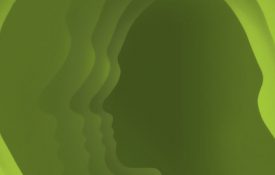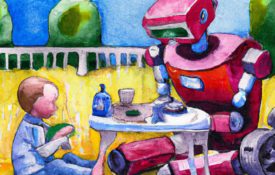-
What Your Favorite Personality Test Says About You
In ancient Greece, the physician Hippocrates is said to have theorized that the ratio of four bodily fluids—blood, yellow bile, black bile, and phlegm—dictated a person’s distinct temperament. The psychologist Carl Jung, in his 1921 book, Psychological Types
-
Combating the ‘Microstress’ That Causes Burnout
Have you had days that exhaust you extraordinarily without any particular reason why? There’s no traumatic event or unpleasant encounter that stands out, no urgent work deadline or health issue weighing on you, nothing hovering
-

New Content From Advances in Methods and Practices in Psychological Science
A sample of articles on small-study findings, evaluating the quality of social/personality journals, comparing analysis blinding with preregistration in the many-analysts religion project, information provision for informed consent procedures, and much more.
-
Personality Can Change From One Hour to the Next
Psychologists use personality traits such as extroversion, neuroticism or anxiety as a means of characterizing typical patterns of thought, emotion and behavior that differ from one person to the next. From this perspective, the constituents of personality
-

A Very Human Answer to One of AI’s Deepest Dilemmas
Imagine that we designed a fully intelligent, autonomous robot that acted on the world to accomplish its goals. How could we make sure that it would want the same things we do? Alison Gopnik explores. Read or listen!
-
Happiness Study Reveals a Critical Difference Between Two Types of People
HUMANS HAVE A complicated relationship with happiness. Consider this study on the subject: Scientists found that valuing happiness can lead to less happiness when you feel happy. It’s an emotional rollercoaster fueled by unhelpful expectations. Yet the relationship gets more

